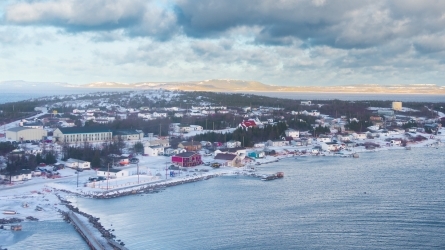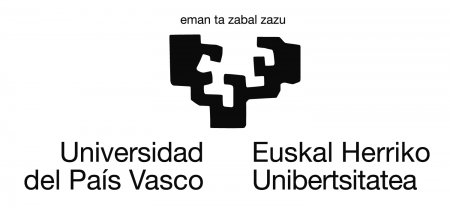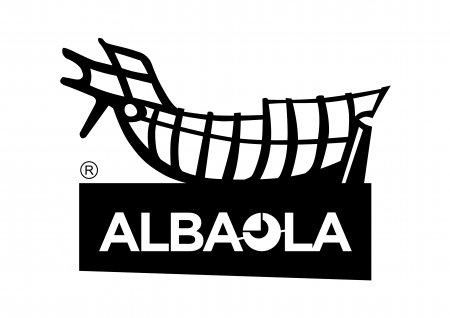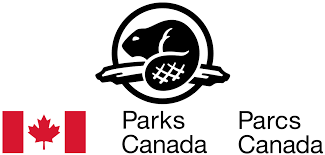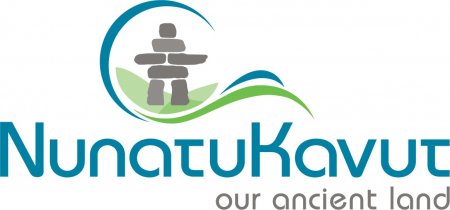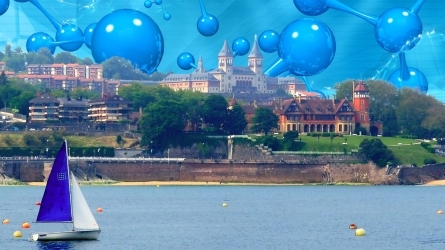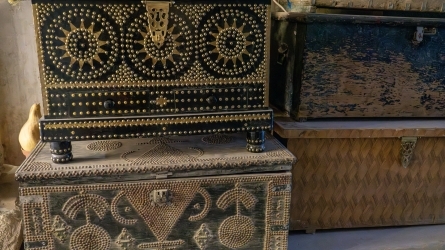Basque Country and Canada: From the sea to the stars
Description
This course is organized by the University of the Basque Country (UPV/EHU) in collaboration with the Embassy of Canada in celebration of the productive and long-standing research relations between the UPV/EHU and its Canadian partners.
In dynamic, accessible presentations, researchers from the UPV/EHU and Canada will provide an overview of some of the most impactful joint research results. The topics covered range from the historical relations between the first Basque travellers to Canada and their relations with indigenous populations to cutting research in the exploration of Mars.
The bridge between the past and the present revolves around the major themes of Language, Transportation, Management of Natural Resources, Communication and Health.
The course will also count with the contributions of representatives from Canadian First Nations, the Embassy of Canada, Parks Canada, Albaola Euskal Itsas Kultur Faktoria, and the UNESCO Chair on Cultural Landscape and Heritage.
Each afternoon complementary activities are programmed to highlight the scientific and cultural connections between Canada and the Basque Country.
The presentations will be delivered in Basque and English with simultaneous interpretation.
The course will provide a unique opportunity to anyone with interest in historic and contemporary ties between the Basque Country and Canada.
Objectives
To disseminate the scientific relations between the University of the Basque Country (UPV/EHU) and its Canadian partners.
To provide unique access to researchers and institutional representatives from the Basque Country and Canada in an open forum to discuss the mutual influence in both territories across the centuries.
Activity directed to
- All public
- University student
- Students not from university
- Teachers
- Professionals
Directors
Egun, arkeologia irakasle eta doktorego ondoko ikerle giza ari da Gasteizeko Letren fakultatean (UPV/EHU). Erdi Aro eta Aro Modernoko euskal zeramikaren ikerketan aditua, XIV eta XIX. mende bitarteko zenbait prozesu historiko ari da aztertzen gaur egun. Ameriketako kolonialismo goiztiarra, nazioarteko euskal arrantza edota Karlismoaren ikerlanean ari da buru-belarri. Nazioarteko argitalpen eta proiektuak, Euskal Herriko zenbait gune aztergai dituen jarduera ezberdinekin uztartzen ditu, bereziki Aiarako bailaran. Nazioarteko arkeologi erakundeetako kide eraginkorra izateaz gain, kongresuen antolaketa eta parte-hartzean zein aldizkariekiko elkarlanean biziki ari da azken urteotan. "Society for Post-Medieval Archaeology" erakundearen "Community Engagment Award" saria jaso du 2016an. Iraganeko ezagutza gizarteratzea da hain zuzen, gauzatzen dituen azken ikerlanen zeharkako ezaugarria.

Bryan John Leferman
Universidad del País Vasco/Euskal Herriko Unibertsitatea
Dr. Leferman is Adjunct Professor of English Language and Linguistics in the Faculty of Arts of the University of the Basque Country (UPV/EHU). His research spans both applied and theoretical linguistics. He is currently the Director for International Exchange Programmes in the Vice-Rectorate for Basque, Culture and Internationalization at UPV/EHU.
Speakers
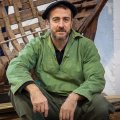
Xabier Agote
Albaola
Xabier Agote is a riverside carpenter, expert in the construction of historic and patrimonial ships. Trained as an apprenticeship at the River Carpentry School of the Maine Maritime Museum, USA, he is also a promoter and publicist of marine culture and expert in navigation tonnage and historical recreation expeditions. He also collaborates in research projects in marine archaeology. In 1997, he founded the non-profit association Albaola and in 2014 he opened the doors of the Itsas Kultur Faktoria, the Maritime Culture Factory, a shipyard museum in Pasaia. The historic replica of the sixteenth century whaler San Juan is being built with the support of UNESCO. In addition to the construction of ships of patrimonial interest, they are recovering old craftsmanship related to shipbuilding, such as forging, rope making, sailboats, etc. There is also an international school of carpentry, Aprendiztegi . In 2018 he created the Pasaia Maritime Festival in collaboration with the Pasaia City Council. It is a biennial meeting that brings together traditional boats and marine cultures from all over the world.

Álvaro Aragón Ruano
UPV/EHU
Alvaro Aragón Ruano (Oiartzun, 09-11-1969) graduated in History at the University of de Deusto in 1992 and obtained his PhD degree at the University of the Basque Country in 2000, where he is Associate Professor. Although at first he focused his research work on forestry and livestock history, in recent years, without abandoning this line, he has combined it with the history of trade in the Basque Country. In this field he has published his research in both international and national journals (Atlantic Studies, International Journal of Maritime History, Journal of European Economic History, Obradoiro de Historia Moderna, Studia Historica, etc.), above all, analyzing the presence, characteristics and identity of Basque traders in international markets. Currently, on the one hand, he is analyzing the discourses of limits and identities developed by the Basque foral territories within the Spanish and French states, and on the other hand, the origin of these commercial elites in the context of the first world globalization.
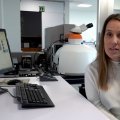
Julene Aramendia Gutierrez
UPV/EHU
Dr. Julene Aramendia is a researcher at the UPV/EHU. She obtained her degree in Environmental Sciences in 2009. Then, in 2010, she got her master's degree in Environmental Contamination and Toxicology and, in 2013, her PhD degree in the same doctoral program. This doctoral thesis was awarded with the international mention, Cum Laude and the Extraordinary PhD Award of the UPV/EHU. Her postdoctoral career has been characterized by her training at foreign universities and research centers such as the Pierre and Marie Curie University, Jet Propulsion Laboratory and Caltech, The University of Sannio and Aarhus University. Most of his scientific contributions are related to the fields of the study of cultural heritage assets and environmental and human health problems. In addition, during the last few years part of his research has focused on space exploration and the application of analytical chemistry to the study of planetary and satellite surfaces. This work is focused on the use of non-destructive analytical techniques such as Raman spectroscopy and X-ray fluorescence. Julene is a member of the scientific team of the laser Raman spectrometer (RLS) on the ESA ExoMars2022 mission and of the scientific team of the SuperCam instrument.

Laura Ballesteros
Sarai Barreiro
Sarai Barreiro Argüelles is an archaeologist and PhD candidate at the Université de Montréal, with a background in Mesoamerican archaeology and a specialization in historical and maritime archaeology of Northeastern Canada. Her current research project explores the exploitation of maritime resources and the maritime mobility of Indigenous peoples and Basque fishermen in the Gulf of St. Lawrence during the 17th and 18th centuries. Her archaeological work focused on the coastal region of Newfoundland and Labrador and the southern Gulf of St. Lawrence, with a particular accent in the analysis of material culture and the complexity of the maritorium used by Basque, Inuit, and Mi'kmaq communities.

Chris Berzins

Allan Bock
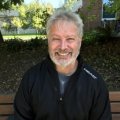
Brian Christie
Dr. Brian Christie was recruited from UBC to the UVic in 2007 as one of the founding members of Island Medical Program (IMP; UBC) and the Division of Medical Sciences (DMS; UVic). In addition to acting as a lecturer and instructor/tutor for UBC medical Students in the IMP, Dr. Christie helped found the Neuroscience Graduate Program at UVic and served as the inaugural program director and graduate advisor. He has also created some of the first undergraduate courses offered by the DMS and has supervised undergraduate and graduate students in the EPHE, Psychology, Biology, Biochemistry and INTD programs over the years, giving him a unique perspective on teaching in multiple programs related to Health. Dr. Christie was recognized for his teaching efforts at UVic with the 2021 Teaching Award in Medical Sciences. Dr. Christie’s research program focus’s on using brain plasticity to promote functional recovery in both acquired (i.e. brain injury) and congenital (i.e. FASD, FXS) neuropathological conditions in the aging brain. His students engage in both preclinical and clinical research, and his translational research program is currently funded by awards from the CIHR,NSERC,MITACS,NIH and NHMRC.

Edward Cloutis
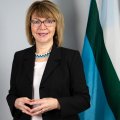
Lisa Dempster
Ms. Dempster was elected to the House of Assembly in 2013 and appointed Deputy Speaker of the House of Assembly in December 2015. In July 2017, she was appointed Minister of Children, Seniors and Social Development, Minister Responsible for the Newfoundland and Labrador Housing Corporation and Minister Responsible for the Status of Persons with Disabilities. She also served as Minister of Municipal Affairs and Environment and the Minister for the Status of Women. In 2021, she was sworn in as Minister Responsible for Indigenous Affairs and Reconciliation, Minister Responsible for Labrador Affairs, and Deputy Government House Leader. Born in Charlottetown, Labrador, Ms. Dempster attended Memorial University and worked in tourism and hospitality before returning home and spending 23 years in Labrador as an employment counsellor, including 10 years with the NunatuKavut Community Council, of which Ms. Dempster is a proud member. Ms. Dempster has served as Deputy Mayor of Charlottetown, Labrador Director with Municipalities Newfoundland and Labrador, trustee with the Labrador-Grenfell Regional Health Authority Board, and was the provincial Indigenous representative on the Memorial University Faculty of Medicine’s Admissions Committee.
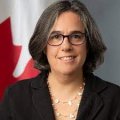
Wendy Drukier
Wendy Drukier is Ambassador to the Kingdom of Spain and the Principality of Andorra since December 2020. She holds a B.A. with honours in Politics and Economics from Queen’s University (1990) and a Master’s Degree from the Norman Paterson School of International Affairs, Carleton University (1994). She joined the Department of Foreign Affairs and International Trade in 1997. Her first posting abroad was at the Embassy of Buenos Aires (1999 to 2002). She then served as Political Counsellor in Bogotá (2007 to 2009) and at Canada’s Permanent Mission to the Organization of American States in Washington, D.C. (2010 to 2012), where she was also Director of the Department’s Hemispheric Affairs Division. From 2012 to 2015, she served as Ambassador to Costa Rica, Honduras and Nicaragua. Afterwards, she held a number of positions in Canada at the headquarters of the Ministry, such as Deputy Director for the Stabilization and Reconstruction Programs Division and Director General of International Organizations. Most recently, she has served as Director General for Economic Development.
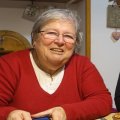
Miren Egaña Goya
Aranzadi Zientzia Elkartea
Miren Egaña Goya has a degree in Romance Philology, and has been a Professor of Basque language and culture in the I.B. by open and public examination since 1980 until her retirement. In addition to teaching, she participated in the 1st Basque Expedition to Labrador. Since 1985, she has been researching the mark left by the Basques in their fisheries and whaling on the east coast of Canada. A grant from the Basque Government in 1990, 1991 and 1992 took her to the archives of Canada. She has studied maps in the National Archives of Canada in Ottawa, Montreal, Quebec, and St. John's, Newfoundland. She has researched in the archives of Saint Pierre et Miquelon, French overseas territories, in the “Archives Nationales de France”, in the “Bibliothèque Nationale de France” in Paris, and in the Naval Museum of Madrid. She has collaborated in Ottawa, with “Parcs Canada” and she has given lectures at the Canadian Museum of History, and at the University of Laval in Quebec. Among her publications: 500 years of Basque presence in the North Atlantic, in 2021; “A Permanent Place in Newfoundland: Seventeenth-Century Basque Tombstones in Placentia” 2018; Egaña Miren & Loewen Brad, “Le routier de Piarres Detcheverry, 1677.

John Geiger
John Geiger was appointed Chief Executive Officer of The Royal Canadian Geographical Society and Canadian Geographic Enterprises in 2013. Prior to that, he served on the Society’s Board of Governors for 8 years, culminating with his election as its 13th President in 2010. John is the internationally bestselling author of seven books, including Frozen In Time: The Fate of the Franklin Expedition. His work has been translated into fourteen languages. John has lectured widely, including at the Bristol Festival of Ideas and Edinburgh Book Festival. In 2014, he presented the Roald Amundsen Memorial Lecture. He has appeared on many television and radio programs, and has been featured in documentary films including ‘Arctic Ghost Ship’ on PBS Nova and ‘The Angel Effect’ on National Geographic Channel’s Explorer. John is a Senior Fellow at Massey College, Toronto. He holds a Doctor of Laws honoris causa from the University of Calgary. In 2015 he received the Polar Medal. In 2018 John was made Honorary Fellow of the Royal Scottish Geographical Society and Honorary Member of the James Caird Society. In 2021, he was awarded with the Order of Canada, and in 2023 received the RCA Medal from the Royal Canadian Academy of Arts.
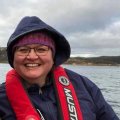
Cindy Gibbons
Cindy Gibbons, Cultural Resource Management Advisor, Parks Canada – Western Newfoundland and Labrador Field Unit Cindy Gibbons grew up in Red Bay on the south coast of Labrador and holds bachelor degrees in Arts (history) and Education (secondary) from Memorial University of Newfoundland. She has extensive experience in the heritage sector of Newfoundland and Labrador, including at sites such as Point Amour, Cape Race and Battle Harbour and with organizations that include the Museum Association of Newfoundland and Labrador and the Heritage Foundation of Newfoundland and Labrador. Before taking on the challenge of CRM Advisor for Western Newfoundland and Labrador, Ms. Gibbons was the Visitor Experience Team Leader at Red Bay National Historic Site for almost 20 years. She continues to live in southern Labrador.
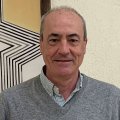
Pedro Grandes
Bachelor of Medicine and Surgery (UPV/EHU), PhD in Medicine and Surgery with Extraordinary Award (UPV/EHU) and postdoctoral researcher at the Brain Research Institute, University of Zurich. Dr. Grandes is Full Professor of Anatomy and Human Embryology since 2002 (UPV/EHU), and got special recognition for his activities in research (6 six-year periods) and teaching (6 five-year periods). Scientific collaborator at the Division of Medical Sciences (University of Victoria, Canada) and Affiliate Member of the Faculty of Graduate Studies (University of Victoria, Canada). Coordinator of the Interuniversity Doctorate Program in Neurosciences (UPV/EHU), member of the Doctoral School Steering Committee (UPV/EHU), and past President of the Spanish Society for Research on Cannabinoids (2019-2023). Dr. Grandes leads the research team LABSYNAPS focused on the study of the cannabinoid system in normal and diseased brain. His greatest milestone was the discovery of cannabinoid receptors in brain mitochondria (Nature Neuroscience 2012, Nature 2016 and 2020, Glia 2018, Neuron 2021). Supervisor of 35 doctoral theses in health sciences.
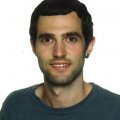
Eneko Iradier
Eneko Iradier received the M.S. and Ph.D. degrees in Telecommunications Engineering from the University of the Basque Country in 2018 and 2021, respectively. He is part of the Radiocommunications and Signal Processing (TSR) research group at the University of the Basque Country (UPV/EHU), where he is an Assistant Professor in the Department of Computer Languages and Systems. In 2017, and for a year and a half, he worked as a student researcher at the IK4-Ikerlan technology center, developing URLLC communications and ultra-low consumption systems. During his doctoral studies, he did an internship with the Communications Research Centre Canada, Ottawa. He is a co-author of more than 50 papers in international journals and conferences. He has served as a reviewer for several renowned international journals and conferences in wireless communications. He is an Associate Editor of the IEEE Transactions on Broadcasting. His current research interests include designing and developing new AI-based technologies for the PHY/MAC/RRM layers of wireless communication systems.
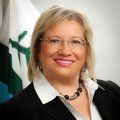
Yvonne Jones
Yvonne Rumbolt-Jones is the Member of Parliament for Labrador and the Parliamentary Secretary to the Minister for the Northern Affairs and to the Minister of National Defense. Prior to her election to the House of Commons in May 2013, Ms. Jones was the Liberal MHA for Cartwright-L’Anse au Clair elected in 1996. At the age of 27 she was the first Inuk woman of Labrador to hold a seat in the Provincial Legislature. She has served as the Parliamentary Secretary to the Department of Works, Services and Transportation and to the Department of Health. In 2003, Ms. Jones was the first women in Atlantic Canada to be appointed Minister of Fisheries & Aquaculture. She was the Minister Responsible for the Status of Women. Ms. Jones was the first female leader of the Liberal Party of Newfoundland and Labrador and leader of Her Majesties Loyal Opposition on November 2007 until 2011. Ms. Jones graduated with a Diploma of Applied Arts in Journalism and began her career as a journalist in Newfoundland and Labrador. She later accepted a position in research with Memorial University. She later took a position as a Resource Employment Counselor with Human Resources Development Canada and settled back in her home region of NunatuKavut.

Paula Laita
Paula Laita Pallares is a researcher at the Soziolinguistika Klusterra. She works in Basque language revitalization projects in the education field developing and applying innovative language teaching methodologies at public schools. She also works in research projects on immigration and language diversity in the Basque Country. Paula Laita holds a PhD on Linguistics and Basque Studies from the University of the Basque Country (UPV/EHU). Her research follows indigenous methodologies and participatory and community-based research principles. It is related to the reclamation of Nenqayni ch’ih (Tŝilhqot’in language) in British Columbia, Canada. She has worked with the Tŝilhqot’in Nation as a Language Coordinator for the last ten years, and collaborates as a Language Revitalization Consultant in the Language Department of Yuneŝit’in Government. She has worked closely with BC’s First Peoples’ Cultural Council and collaborated in developing resources for language revitalization programs in the BC communities. Paula Laita is a Committee Member of the UNESCO Chair of World Linguistic Heritage of the UPV/EHU, and a Sworn Translator and Interpreter appointed by the Ministry of Foreign Affairs, European Union and Cooperation.

Xabier Lamikiz
Xabier LAMIKIZ is an associate professor of Economic History at the University of the Basque Country (Vitoria-Gasteiz). He received his PhD from the University of London in 2006 and completed his post-doctoral project at the University College (UCL) in 2009. He was an assistant professor of Economic History at the Universidad Auónoma de Madrid from 2010 to 2012 when he moved to the Basque Country. He is the author of Trade and Trust in the Eigheenth-Century Atlantic World: Spanish Merchants and their Overseas Networks (Boydell Press, 2010) and has published in well-known academic journals such as Hispanic American Historical Review, Colonial Latin American Review, Revista de Indias, Revista de Historia Económica, and International Journal of Maritime History. He has also published numerous book chapters on early modern Spanish merchants and trade institutions. In 2015, together with Xarles Videgain and Manuel Padilla Moedano, he published the book Othoi çato etchera: Le Dauphin itsasontziko euskarazko gutunak (1757) (Baiona, IKER). He’s currently working on business practices in the Spanish colonial trade during the seventeenth and eighteenth centuries.

Erlantz Lizundia Fernández
Erlantz Lizundia is Associate Professor at the Faculty of Engineering in Bilbao, University of the Basque Country (UPV/EHU). He received his Ph.D. in Advanced Materials Engineering in 2011 at the UPV/EHU. He joined the University of the British Columbia (Canada) and ETH Zurich (Switzerland) in 2016 and 2018 as a visiting scientist. His research is devoted to the development of renewable‐material‐based multifunctional nanohybrids for energy storage, catalytic, optical, and environmental remediation applications. He also works on the ecodesign of novel materials and technologies, including energy storage, through life cycle assessment methodology.

Brad Loewen
Brad Loewen is a professor of historical and maritime archaeology at the Université de Montréal, Canada. As a graduate teacher, he has supervised 12 PhD candidates and 45 master’s students. His excavations include a key site in Old Montréal, the Fort de Ville-Marie, where French colonists founded the city in 1642, and he has published extensively on the archaeology of New France. As part of his work in maritime archaeology, he is the primary author of a major study for Parks Canada on the wreck of the San Juan, a Basque whaler lost in Red Bay, Labrador, in 1565. His research on ship and boat archaeology includes examples of the Basque txalupa found in Red Bay, as well as a dozen other Basque shipwrecks in Cavalaire-sur-Mer, Labrador, Bermuda and Québec. His present research project, “Basques and Indigenous Peoples around the Gulf of Saint Lawrence”, explores txalupak uses by Inuit, Mi’kmaw and Iroquoian peoples. This sailboat brought a degree of indigenous mobility that transformed Indigenous lifeways around the Gulf of Saint Lawrence between 1550 and 1800.
Todd Russell is from William’s Harbour, a tiny island community on the southeast coast of Labrador. Todd attended Memorial University in Corner Brook and St. John’s, graduating with a Bachelor of Arts Degree in History and Classics. Todd was elected to what is now the NunatuKavut Community Council in 1992. Two years later he was elected President, a position he held for 11 years. He has also served on a number of national boards Todd entered federal politics in May of 2005 when he was elected as the Member of Parliament for Labrador during a by-election and he was re-elected in 2006 and 2008. Todd was re-elected President of NCC again in 2012 and again in 2016 and 2020.

Yiyan Wu
Registration fees
| Registration | Until 17-06-2024 |
|---|---|
| 50,00 EUR | |
| 25,00 EUR | |
| 10,00 EUR | |
| 0 EUR |
Venue
June 20th at Albaola Itsas Kultur Faktoria and June 21st at the Miramar Palace
Ondartxo, 1, 20110 Pasai San Pedro | Paseo de Miraconcha 48, 20007 Donostia/San Sebastián
Gipuzkoa
